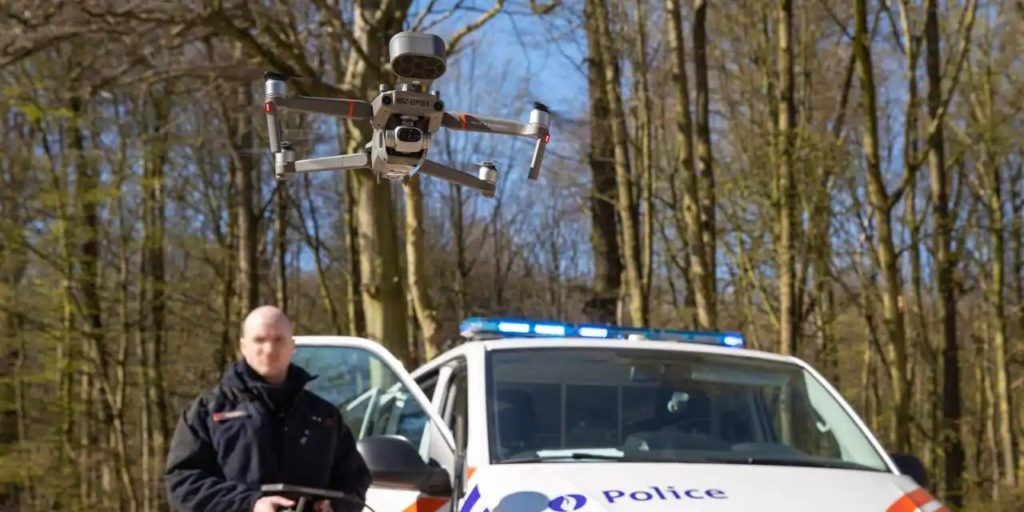The existing policy governing the use of drones by police to gather information lacks clarity and is likely to clash with the rules on the protection of privacy, according to a report by the Supervisory Body for Police Information (COC).
The COC started an investigation into the police use of drones when it was announced in the news in December that police in the Carma police zone based in Genk in Limburg province intended to deploy drones to help enforce the legal restrictions on gatherings at the Christmas and New Year period.
The proposal caused some misgivings regarding the infringement of privacy involved in police overflying people’s back gardens to ensure no more than four people were present, and whatever else the drone technology might permit them to keep under surveillance.
The COC called for more information and visited the police on the ground, and it has now issued an opinion which targets not the police, but the legislature, for leaving the situation unclear and open to possible dysfunctions.
“The purpose of our visit was, first of all, to clear up the situation to ensure that we were not in the science fiction scenario that some imagined, with close surveillance as in the movies,” said Frank Schuermans, an adviser to the COC.
“The visit allowed us to see how serious the breaches of protocol were, especially with regard to the use of personal data. However, it should be noted that the ideas coming out of the police are novel and unprecedented.”
In any case, he said, any violations of privacy in the use of drones can be assigned not so much to the police but more to the legal situation on the use of drones, which remains unclear, despite the fact that the technology is hardly new.
In the beginning, the growing use of drones by both professionals and hobbyists was governed by a 1954 Royal decree on model aircraft. Since then the law has been brought up to date, but it still lacks clear boundaries on uses which would violate personal privacy.
The Limburg proposal would have had drones equipped with heat cameras flying over residential areas to determine whether there were households welcoming more than the legal number of visitors – a proposal that immediately raised the hackles of privacy advocates and politicians alike.
The visit carried out by the COC, the report says, “also showed that the cameras of the drones of the [zone Carma] are in any case not able to zoom in in detail on a person or object when and insofar as the aforementioned standard flight altitude is respected. Reading a number plate, for example, turned out not to be possible at that height. It also turned out to be impossible to look into a building.”
The COC has now given the police chief of the Carma zone two months to compile an impact and risk-analysis report on the use of drones, and also to submit a request for permission to the eight municipal authorities the zone covers, and that within four months.
Alan Hope
The Brussels Times

